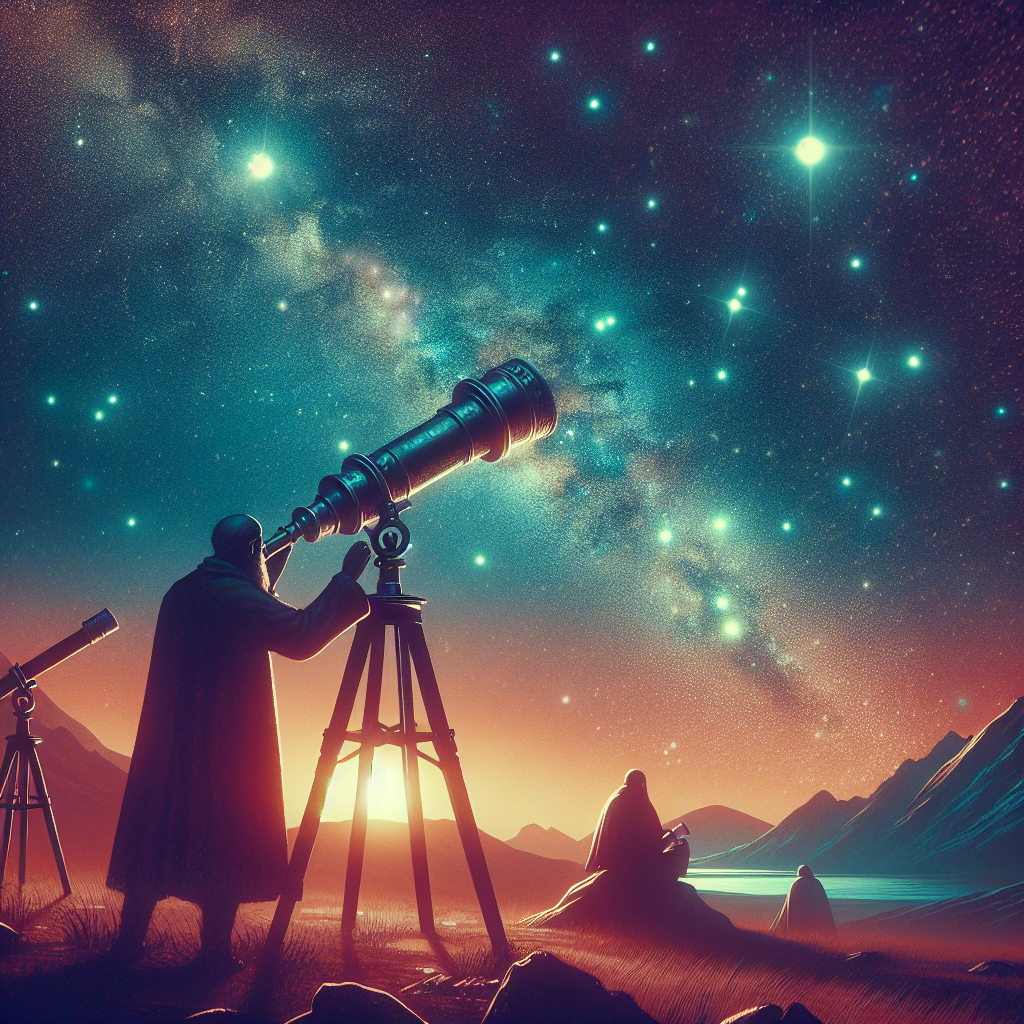Discovery of Early Fast-Feeding Black Hole Unveiled by Astronomers and NASA Telescopes
-
Table of Contents
- Discovery of Early Fast-Feeding Black Hole Unveiled by Astronomers and NASA Telescopes
- Unveiling the Early Fast-Feeding Black Hole
- Implications for Quality Education
- Economic Growth and Technological Advancements
- Spiritual Harmony and Cosmic Awareness
- Climate Action and Environmental Awareness
- Health and Welfare
- Summary
Discovery of Early Fast-Feeding Black Hole Unveiled by Astronomers and NASA Telescopes
Astronomers and NASA telescopes have recently made a groundbreaking discovery, unveiling the existence of an early fast-feeding black hole. This remarkable finding not only expands our understanding of the universe but also holds significant implications for various aspects of human life, including quality education, economic growth, spiritual harmony, climate action, and health and welfare.
Unveiling the Early Fast-Feeding Black Hole
Using state-of-the-art telescopes and advanced data analysis techniques, astronomers have identified a black hole that existed just 900 million years after the Big Bang. This early black hole, named J1342+0928, is estimated to have a mass equivalent to 800 million times that of our Sun. What makes this discovery even more remarkable is the fact that this black hole was already fast-feeding at such an early stage in the universe’s history.
By studying the light emitted from this distant black hole, scientists were able to determine its feeding rate. They found that J1342+0928 was consuming matter at an astonishing rate, equivalent to the mass of our Sun every two days. This rapid feeding suggests that black holes grew at a much faster pace in the early universe than previously thought.
Implications for Quality Education
The discovery of this early fast-feeding black hole opens up new avenues for research and exploration. It provides astronomers and scientists with valuable insights into the formation and evolution of black holes, shedding light on the mysteries of the universe. This knowledge can be incorporated into educational curricula, inspiring students to pursue careers in astronomy and astrophysics. By fostering a passion for science and discovery, we can nurture the next generation of scientists who will continue to push the boundaries of human knowledge.
Economic Growth and Technological Advancements
Advancements in space exploration and astronomy have historically driven technological innovation and economic growth. The discovery of the early fast-feeding black hole is no exception. It will undoubtedly lead to the development of new telescopes, instruments, and data analysis techniques, creating opportunities for technological advancements in various industries.
For example, the need for more powerful telescopes to observe and study distant black holes may drive advancements in optics and imaging technology. This, in turn, can have applications in fields such as medical imaging, where high-resolution imaging is crucial for accurate diagnoses.
Spiritual Harmony and Cosmic Awareness
The vastness and complexity of the universe have always fascinated humanity, inspiring a sense of awe and wonder. The discovery of an early fast-feeding black hole further deepens our understanding of the cosmos and our place within it. It reminds us of the interconnectedness of all things and encourages a sense of spiritual harmony.
By contemplating the mysteries of the universe, individuals can develop a greater appreciation for the beauty and intricacy of life. This cosmic awareness can foster a sense of unity and interconnectedness, promoting harmony among different cultures and religions.
Climate Action and Environmental Awareness
While the discovery of an early fast-feeding black hole may not have an immediate impact on climate action, it serves as a reminder of the fragility and uniqueness of our planet. The vastness of the universe highlights the importance of preserving and protecting our home, as it is the only known place where life exists.
By understanding the grandeur of the cosmos, individuals are more likely to develop a sense of environmental awareness and take action to mitigate climate change. This discovery can serve as a catalyst for promoting sustainable practices and encouraging individuals, communities, and governments to prioritize the well-being of our planet.
Health and Welfare
While the connection between the discovery of an early fast-feeding black hole and health and welfare may not be immediately apparent, scientific advancements in astronomy and astrophysics have far-reaching implications for various fields, including medicine.
For instance, the development of advanced imaging techniques used in astronomy can be applied to medical imaging, leading to more accurate diagnoses and improved patient outcomes. Additionally, the pursuit of scientific knowledge and the sense of wonder inspired by astronomical discoveries can have positive effects on mental health and overall well-being.
Summary
The discovery of an early fast-feeding black hole by astronomers and NASA telescopes is a significant milestone in our understanding of the universe. This finding has wide-ranging implications for quality education, economic growth, spiritual harmony, climate action, and health and welfare.
By incorporating this discovery into educational curricula, inspiring technological advancements, fostering a sense of spiritual harmony, promoting environmental awareness, and driving advancements in medical imaging, we can harness the power of this discovery to create a better future for humanity.


